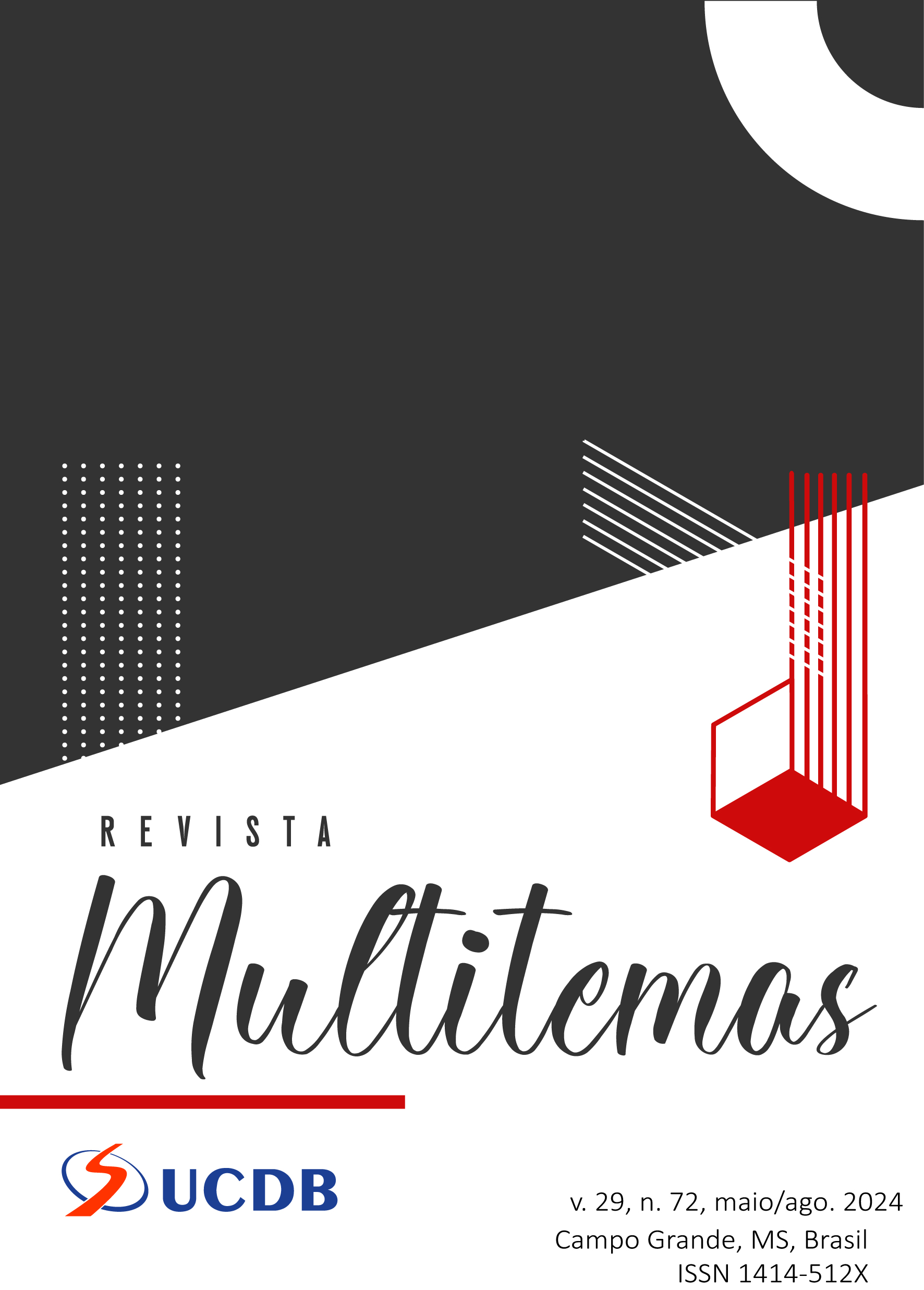An introductory exploratory study about the place of communication in science
DOI:
https://doi.org/10.20435/multi.v29i72.4399Keywords:
method, views, vulnerabilities, science, communicationAbstract
In this paper, an exploratory study is conducted from the application of a method with potential to indicate weakness, opportunities and gaps about a specific subject. Therefore, a general perspective about the theoretical model that grounds the methodology and its description is offered. Then, the method is applied in a meticulously selected paper to identify and examine the vulnerabilities – explicit and implicit choices from author due the methodological, theoretical and empirical views – in a study about the relation between science and communication. The results point to the existence of serious problems inherent to the theory of contemporary science and to a new and emergent communication science about the communication's empirical phenomena by itself.
References
CASTELLS, Manuel. A Sociedade em Rede - A Era da Informação: Economia, Sociedade e Cultura. [Volume I]. 15. ed. São Paulo: Paz e Terra, 2012.
ENGELBART, Douglas Carl. Augmenting Human Intellect: a conceptual framework. Stanford: Stanford Research Institute, 1962.
FRANÇA, Vera Veiga. Paradigmas da comunicação: conhecer o quê? In: ENCONTRO ANUAL DA COMPÓS, 10., 2001, Brasília. Anais [...]. Brasília: Compós, 2001.
KÖCHE, José Carlos. Fundamentos de Metodologia Científica: teoria da ciência e iniciação à pesquisa. Petrópolis: Vozes, 2011.
LAKATOS, Eva Maria; MARCONI, Marina de Andrade. Fundamentos de Metodologia Científica. 5. ed. São Paulo: Atlas, 2003.
LÉVY, Pierre. As tecnologias da inteligência: o futuro do pensamento na era da informática. Tradução: Carlos Irineu da Costa. Rio de Janeiro: Editora 34, 2011.
LOR, Peter Johan. International and comparative librarianship: concepts and methods for global studies. Boston: De Gruyter Saur, 2019. Doi: https://doi.org/10.1515/9783110267990
MANOVICH, Lev. Software Takes Command. New York: Bloomsbury, 2014. Doi: http://dx.doi.org/10.5040/9781472544988
RHEINGOLD, Howard. Tools for Thought: the History and Future of Mind-Expanding Technology. Cambridge: The MIT Press, 2000. Disponível em: http://www.rheingold.com/texts/tft/. Acesso em: 3 fev. 2024.
SIGNATES, Luiz. A Comunicação como ciência básica tardia: uma hipótese para o debate. E-Compós, Brasília, v. 21, n. 2, maio/ago. 2018. Doi: http://doi.org/10.30962/ec.1387
SERRA, Joaquim Paulo. Manual de Teoria da Comunicação. Covilhã: Livros Labcom, 2007.
SODRÉ, Muniz. A ciência do comum: notas para o método comunicacional. Petrópolis: Vozes, 2014.
YIN, Robert. Estudo de casos: planejamento e métodos. 5. ed. Tradução: Cristhian Matheus Herrera. Porto Alegre: Bookman, 2015.
Downloads
Published
How to Cite
Issue
Section
License
Copyright (c) 2024 Alfredo Lanari

This work is licensed under a Creative Commons Attribution 4.0 International License.
Os artigos publicados na Revista Multitemas têm acesso aberto (Open Access) sob a licença Creative Commons Attribution, que permite uso, distribuição e reprodução em qualquer meio, sem restrições desde que o trabalho original seja corretamente citado.
Direitos Autorais para artigos publicados nesta revista são do autor, com direitos de primeira publicação para a revista. Em virtude de aparecerem nesta revista de acesso público, os artigos são de uso gratuito, com atribuições próprias, em aplicações educacionais e não-comerciais.





